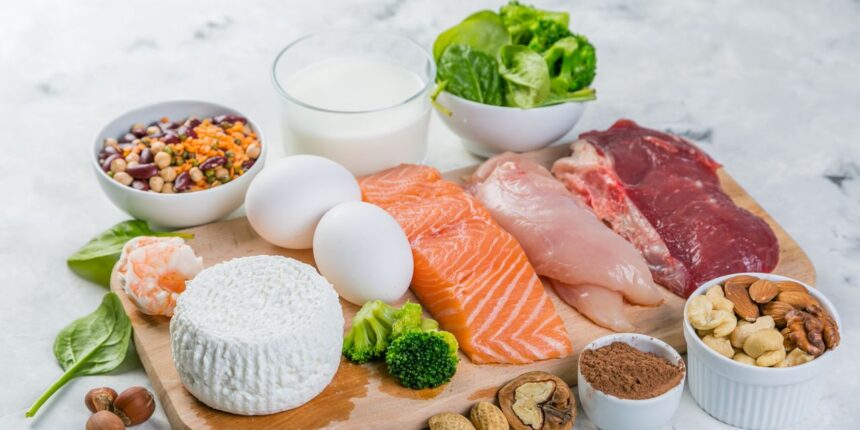When a protein is a good source of all nine of the essential amino acids, we call it a “complete protein.” All animal products are complete proteins, and so is soy (including soy products like tofu, tempeh, and edamame). When a protein is missing or pretty low in any of those essential amino acids, it’s considered incomplete. That’s the case with most plant foods.
But in good news for vegetarians, vegans, and lovers of plant foods in general, you don’t necessarily have to eat complete proteins to get all the essential amino acids: Eating a wide variety of incomplete proteins will do the trick as well. As the FDA explains, incomplete proteins are often just lacking in one or two amino acids, so they’ll naturally make up for one another’s deficiencies. For instance, grains are low in an amino acid called lysine, while beans and nuts are low in methionine. But when you eat, say, beans and rice or wheat toast with nut butter, you’re getting all the amino acids that you do when you eat, say, chicken. While people used to be encouraged to eat incomplete proteins in complementary combinations at meals to get the full array of aminos at once, we now know this is not necessary, according to the US National Library of Medicine—as long as you’re eating a variety throughout the day, you should be A-OK.
Why we even need protein
That building block nickname is no exaggeration: Protein is an integral component of every cell in your body, including your muscles.
“If we don’t get enough protein, our bodies actually won’t be able to rebuild properly and we’ll start to lose muscle mass,” Colleen Tewksbury, PhD, MPH, RD, assistant professor in nutrition science at Penn Nursing and past president of the Pennsylvania Academy of Nutrition and Dietetics, tells SELF.
Protein helps repair the microtears that occur in your muscle fibers when they’re strained during exercise, the American College of Exercise (ACE) explains. That process of damage and repair is what maintains and increases your muscle mass.
But protein isn’t just important for people who work out: In addition to muscle growth and repair, protein is essential to the growth and repair of virtually all cells and body tissues—from your skin, hair, and nails to your bones, organs, and bodily fluids, according to the FDA. That’s why it’s especially important to get enough during developmental periods like childhood and adolescence.
Protein also plays a role in crucial bodily processes like blood clotting, immune response, vision, fluid balance, and the production of various enzymes, hormones, and antibodies, per the FDA. And because it contains calories, it can also provide energy for storage or immediate use. (But like we said before, this definitely isn’t its primary role, which we’ll discuss more in a bit.)
What happens in your body when you eat protein
Unfortunately for those hoping for instant gains, it’s not like eating a piece of chicken will send protein directly to your biceps. No matter what kind of protein you’re eating—plant or animal, complete or incomplete—your body’s first objective is to break it back down (via the digestive process) into all the different amino acid units it was assembled from, Dr. Tewksbury explains.
Read the full article here



